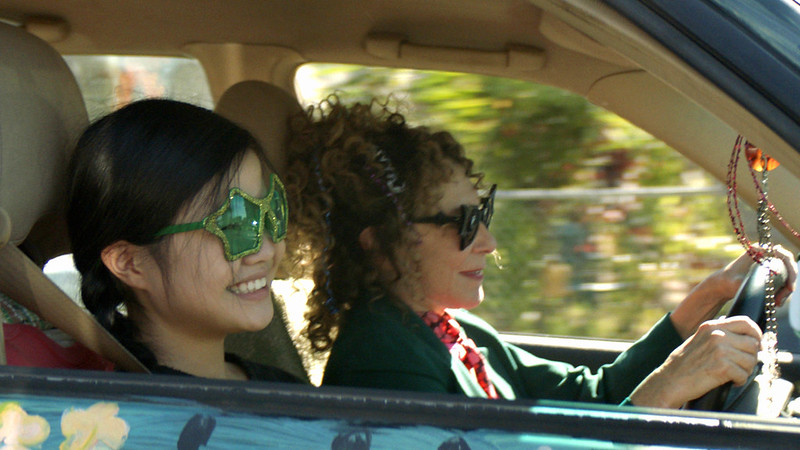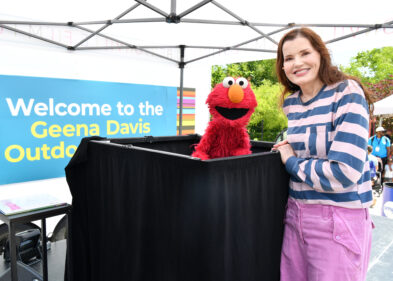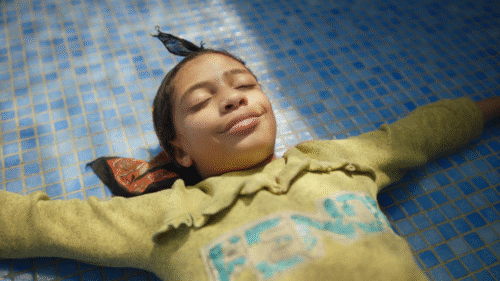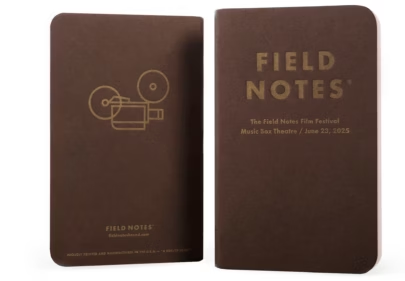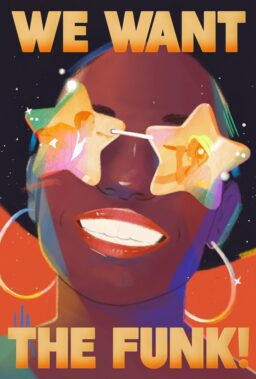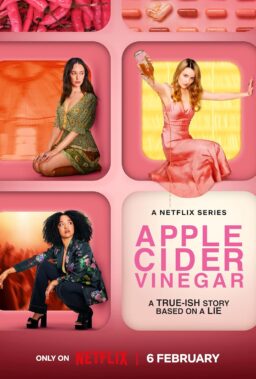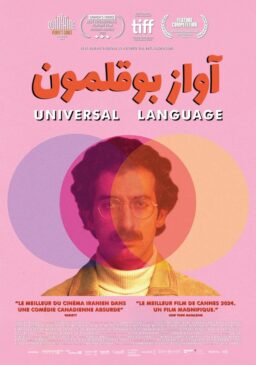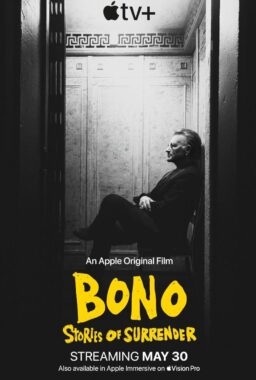Sundance is known for its progressive approach to wide entertainment, but it also can be known for loving a crowd-pleaser. It has worked for “Little Miss Sunshine” all the way to 2019’s “Troop Zero,” so why should it stop? Enter writer/director Kate Tsang’s “Marvelous and the Black Hole,” a wholly sincere crowd-pleaser with bursts of inspired comedy, with only its familiarity striking as a major flaw.
Miya Cech stars in the endearing family-comedy as Sammy, a lonely but hilariously caustic 13-year-old raging against the world after her mom’s passing. On top of that, her dad Angus (Leonardo Nam) is forcing her to go to small business school for the summer, while also dating a woman (Paulina Lule) she feels will replace her mom (her sister, played by Kannon, is more accepting). While skipping class, Sammy ends up running into a magician named Margot (Rhea Perlman), who forces her to be her assistant for a preschool presentation nearby. At first Sammy is resistant to believing in magic, even during an early scene in which she watches Margot perform a slew of impressive tricks to a young audience. But when Sammy starts to see Margot’s illusions as an attainable skill, and one that also has to come with a heart, Margot becomes intrigued. So are we.
Margot recognizes this angst within Sammy, and instead tries to deflect it with magic, while Cech faces an angst that sometimes manifests itself in violent (but funny) daydreams. The scenes in which Margot teaches Sammy magic are charming, and better yet, they give magic a deeper meaning. The movie makes card tricks and vanishing rabbits seem within grasp—it might even inspire viewers to do it—and as part of storytelling. Whether showing the secret mechanics of magic gets Tsang banned from magician societies—or a statue in her honor—I can’t tell, but either way her infectious fondness for magic is worth it.
Tsang proves to be very smart with the formula, and uses that excellent chemistry between Cech (she has a way with a barbed one-liner) and Perlman. They’re colorful, stark opposites, and you want to root for them individually and as a duo. It’s also great how the movie keeps Perlman’s endlessly charismatic Margot more of a question mark, not just because she’s a magician, but so she can create her own space within the trope of a wise, older mentor.
However broad “Marvelous and the Black Hole” may be, the story works moment by heartfelt moment, so much that you’re excited for the climax that inevitably brings it all together. The movie finds an ideal family-comedy balance: it works for viewers who may be new to its message, but it can still charm older viewers who know that a formula can be magic—it just depends on what’s up a director’s sleeve.

“Endearing” is another word that would certainly describe the whole of “Together Together,” which premiered at the festival as part of its US Dramatic Competition. Writer/director Nikole Beckwith focuses on two people sharing an experience that has not been talked about a great deal in film.
Patti Harrison stars in the movie as Anna, a 26-year-old woman who has been hired by Matt (Ed Helms) to carry the baby he will be a single father to. From the start, Beckwith’s script has an intriguing approach to their different life situations, empathizing with why they’ve ended up lonely, and what they are willing to do to get where they’re going next. And also from the start, Matt is particularly fussy and neurotic about what Anna is doing with her body (including what tea she’s drinking, or that she’s having sex), which reveals his pushier side in some of the script’s broader jokes. Especially as she gets to the second and third trimester, the experience brings them closer together; their complicated but platonic friendship is an inspired balancing act from the script that knows a thing or eight about awkwardness or loneliness.
Beckwith brings a spark to many of the scenes that have Anna and Matt conversing, with both of them racing to a level of clumsiness that is refreshingly human. The only detail of Beckwith overplaying her cards regarding comedy can come from easy jokes about hippy-dippy, new-age birth classes etc; Helms’ clumsy feminism becomes a recurring part of his obliviousness to her deeper feelings and experience, but it remains painfully true. Beckwith balances this with a sense that their relationship might be fulfilling but can be as over as soon as the birth, giving the story a resonating bittersweet quality underneath the laughs.
Helms brings a familiar but welcome energy—it’s the newer actor, Harrison, who guides the movie to its more complicated and comical places. She has a disarming quality opposite Helms, volleying his naïveté in a way that can be comical but also shows a far more complicated soul underneath. She is vividly funny and melancholy, and we root for her from the start.

Showcased at Sundance as part of the US Documentary Premieres section, “My Name is Pauli Murray” is the kind of documentary that offers a wonderful crash course in someone more people need to know about (myself included). Do you know the name of this gender non-conforming, influential, inspirational lawyer, poet, Black activist, and priest? I confess that before this documentary I did not, despite all the classes I’ve taken on US history. This documentary by Julie Cohen and Betsy West (of “RBG” among others) was then a type of welcome corrective to my understanding of the civil rights movement, especially given Murray’s proven influence on different movements against segregation and discrimination. And as an extremely intelligent person who led with their poetic mind, Murray’s words are a captivating source for Cohen and West to draw from and then splash on the screen.
Cohen and West tell Murray’s story from their birth to their passing, but it has a sense of now that keeps the documentary particularly engrossing. There are so many chapters to Murray’s life, and with strong pacing the directors cover Murray’s pioneer work and legendary persistence, which has been used in landmark cases at the Supreme Court. Murray fought against discrimination in their own life, persisting through sexist academia and inspiring people across institutions like the ACLU; their personal life had its own heartbreak, which is given a tender recollection here. With the help of numerous talking head interviews, using people who have studied Murray or look to them as a hero, “My Name is Pauli Murray” creates a rich portrait of such an intricate figure.

